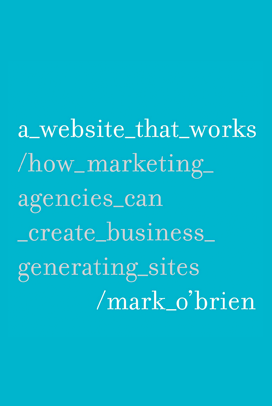The answer really depends upon your intent in using either platform. As far as intent goes, there are two basic categories: either you want to market a product or a service, or you want to deliver a product or a service. I’ll explain the nuances between the two in a moment, but, at the risk of oversimplifying this, if your intent is to market a product or service, I think optimizing your site for mobile users is the way to go. But if you want to deliver a product or service, then an app might suit your needs best.
If You Are Delivering a Product or Service…
What I mean by delivering is literal: are you looking for the best solution to actually deliver your product or service to the customer? If you already have a website that is performing well enough to free you up to look in to mobile solutions, then the app marketplace could be your next step. Plenty of consumer brands are doing quite well by offering mobile “storefronts” that are actually apps. While Amazon, for instance, has a mobile-optimized website, the better consumer experience is through their app. If your company has a large product catalog from which customers are likely to make repeat purchases as well as spend time browsing and/or creating wishlists, then, again, an app could work well. In this situation, the user experience must be finely controlled in order to be conducive to selection and checkout. There are all kinds of advantages to this environment from a sales perspective—tight controls, security, ease of use for the consumer, one-click purchasing, etc.
Also, if your product or service is something that could be developed as an app—like a piece of entertainment or recurring content for sale—then, obviously, the app marketplace handles this very well. In fact, this above all—where the consumer actually purchases the app itself—is what the app marketplace does best. If your product or service (service, as in a subscription to content) can fit this model, search no more.
If You Are Marketing a Product or Service…
But for the rest of us—we who do pull marketing for products and services primarily using informative, educational, expertise-establishing content, the web is where it’s at. I outlined most of my big reasons in a talk I gave at UNC on the mobile web, as well as in this month’s newsletter, but I’ll repeat the most important and simple ones here. First and foremost, if content marketing is your game, then you’re already (or should be) doing it on the web. Why double your effort by replicating and reformatting all that content in an app that will be hard to find? As for finding, that’s my second point: Content within apps is about as findable as content stuck in a PDF or Flash file. That is, not findable at all. The app store’s search tools aren’t sophisticated, so if an app’s name or description doesn’t match the query, it’s not going to be found. That alone, from a pull marketing standpoint, makes apps a no-go. If you are marketing your product or service and hoping to bring in prospects that desperately need and want what you have to offer but don’t know about you yet, you won’t do that in the app store. Stick with the web, which makes that dream come true every day for those that create quality content and know how to optimize it for search engines.
If You Are Doing Both…
Finally, I should add that though this probably only will apply to a select few, it might make a lot of sense to do both. Of course, if you’re one of those select few that does both for good reason, you’re probably not reading this!


